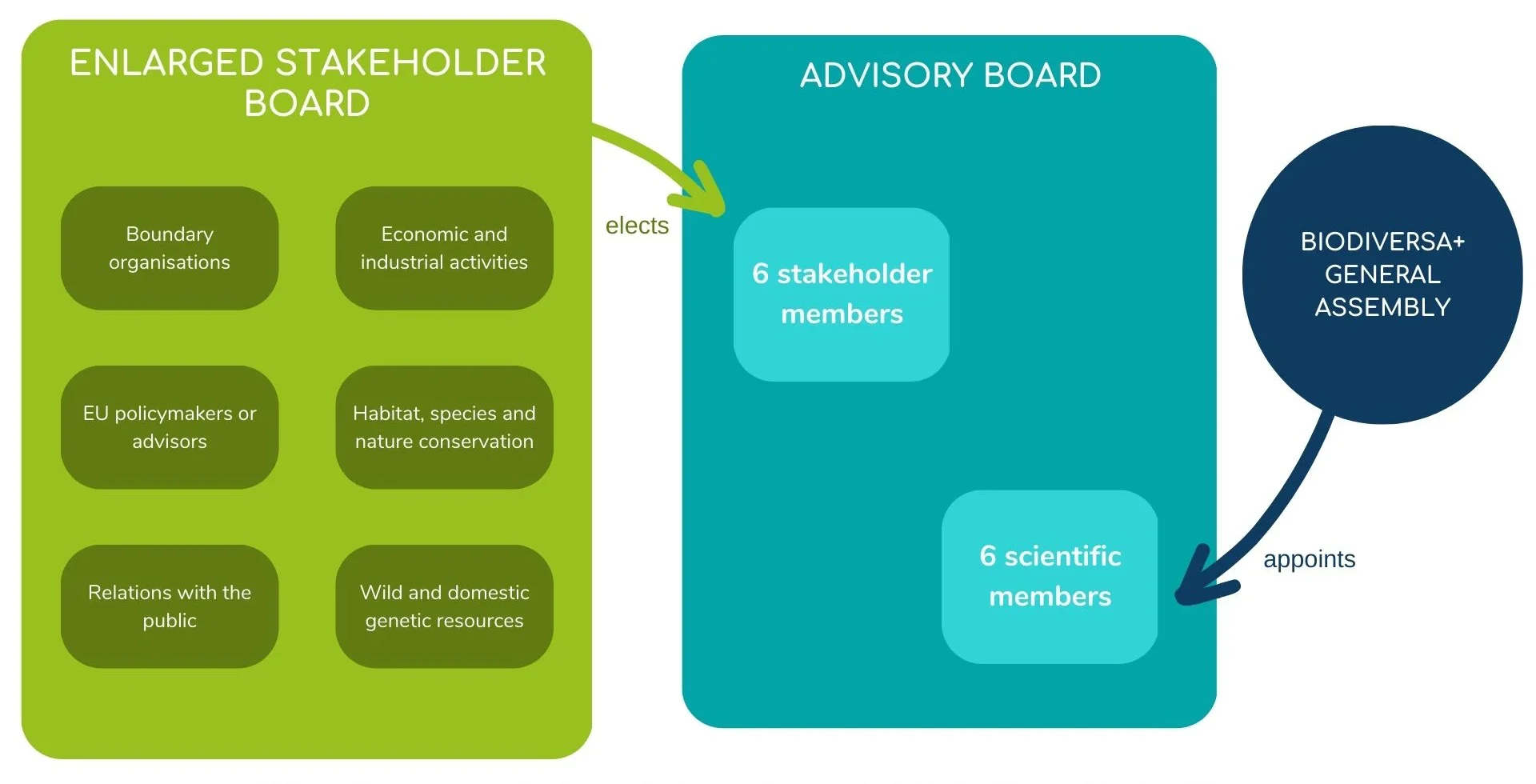About the Board
The Advisory Board brings together perspectives from both academic and non-academic stakeholders to guide the strategy and activities of Biodiversa+. It provides recommendations on priorities such as flagship programmes, advises on the development and implementation of the Partnership’s work plan, and reviews major outputs and impacts. It also channels inputs from the Enlarged Stakeholder Board (ESB) to ensure broader stakeholder views are reflected. In addition to strategic guidance, the Board contributes to the dissemination of Biodiversa+ results across scientific and stakeholder communities.
It is composed of six scientific members appointed by the Biodiversa+ General Assembly, and six stakeholder members elected by their respective ESB college, each having a substitute. Hilde Eggermont is chairs the Advisory Board, while Cristiano Vernesi and Serena Arduino, co-chairs of the ESB, serves as its vice-chairs.
